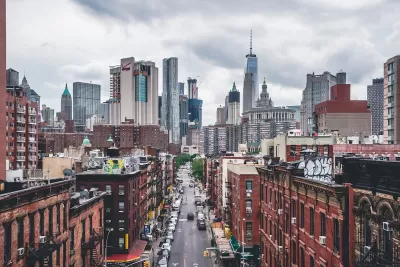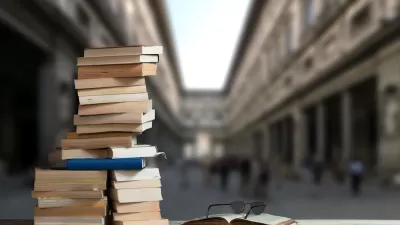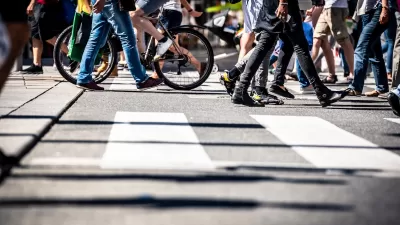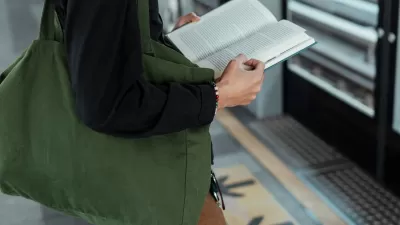One author offers a framework for resilience that rethinks common assumptions about the inevitability of cities as we know them.

In a piece for Next City, Stephanie Wakefield outlines key points from her new book, Miami in the Anthropocene: Rising Seas and Urban Resilience, which calls for a rethinking of the role urban places play in building resilience and mitigating the impacts of climate change.
With the urban envisioned as the inevitable form of the twenty-first century, it seems the only question mark is whether urban spaces and processes will be more or less resilient or equitable, smart or inclusive.
Wakefield proposes an alternate paradigm for approaching the future of cities, noting that the urban form as we know it may not survive changing conditions. “Will and should the urban as we know it actually survive the upending impacts of climate change or human responses?”
Wakefield ponders, “Rather than an endless expanse of cities and urbanization processes with seemingly no terminus — the latter destined to be but fodder for ever greater resilience of the former — might the Anthropocene’s human and nonhuman dislocations produce other spaces, processes and imaginaries entirely?”
FULL STORY: Theorizing Cities Under the Anthropocene

Alabama: Trump Terminates Settlements for Black Communities Harmed By Raw Sewage
Trump deemed the landmark civil rights agreement “illegal DEI and environmental justice policy.”

Study: Maui’s Plan to Convert Vacation Rentals to Long-Term Housing Could Cause Nearly $1 Billion Economic Loss
The plan would reduce visitor accommodation by 25% resulting in 1,900 jobs lost.

Planetizen Federal Action Tracker
A weekly monitor of how Trump’s orders and actions are impacting planners and planning in America.

Wind Energy on the Rise Despite Federal Policy Reversal
The Trump administration is revoking federal support for renewable energy, but demand for new projects continues unabated.

Passengers Flock to Caltrain After Electrification
The new electric trains are running faster and more reliably, leading to strong ridership growth on the Bay Area rail system.

Texas Churches Rally Behind ‘Yes in God’s Back Yard’ Legislation
Religious leaders want the state to reduce zoning regulations to streamline leasing church-owned land to housing developers.
Urban Design for Planners 1: Software Tools
This six-course series explores essential urban design concepts using open source software and equips planners with the tools they need to participate fully in the urban design process.
Planning for Universal Design
Learn the tools for implementing Universal Design in planning regulations.
Caltrans
Smith Gee Studio
Institute for Housing and Urban Development Studies (IHS)
City of Grandview
Harvard GSD Executive Education
Toledo-Lucas County Plan Commissions
Salt Lake City
NYU Wagner Graduate School of Public Service





























